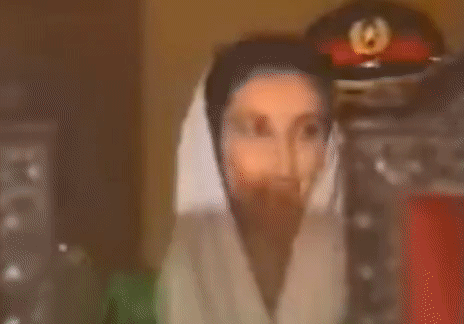
Lt. Gen. Boris Vsevolodovich Gromov, Commander of the 40th Army
Comrade President,
I must confess that at first I was hesitant about giving permission for such an offensive, but it was the opinion of our diplomatic corps and Defence Minister Cde. Yazov that the terrorists of [REDACTED] in this region do in fact constitute an existential threat to your strategical survival. Thus I have been tasked with providing the necessary support units for this operation; including both planning, logistics as well as direct combat involvement of local Soviet ground forces. If needed, the Defence Minister has also authorized me to continue supporting such an offensive deeper into enemy territory, in order to allow you more breathing space and a strategic depth. Our combat aid, however, will mostly constitute of aerial and artillery support. I propose a launching date of no later than [REDACTED]. I will momentarily be arriving to Kabul to discuss the execution of this plan with your General Staff.
B. V. Gromov
_ _ _ _
A letter to Gen. Abdul Qadir Aqa, Commander of the Afghan Air Force, and Gen. Shahnawaz Tanai, Defence Minister.
Comrade General,
I thank you for your commendations, general. I am confident that the task of defending Afghanistan and the legacy of its revolution is now in as able hands as before. However, as for these requests on acquisition, it would probably be more prudent to turn to Cde. General Varennikov, special Deputy Minister of Defence for affairs in Afghanistan. I hear that he is planning a visit to Kabul in the next months.
Sadly I must also predict that your request for the [REDACTED] tactical [REDACTED] might be turned down. Firstly, this aircraft has seen only limited use in the Afghanistan theatre, and secondly it is considered to be of a too high technical priority to be deployed in the hands of other allies at the moment. The Ministry of Defence fears that delicate technology might end in wrong hands if any of these aircraft were to be shot down. I will personally try to advocate for such a delivery, recognizing the usefulness of the plane, but I fear that it will be in vain. Instead of the [REDACTED], our Ministry of Defence is far more likely to offer the [REDACTED], which has proven its effectiveness in ground attack role during our operations.
The other requests, however, seem far more likely to be accepted, but I would still recommend discussing them in more detail with comrade Varennikov. However I am certain that you will be receiving all the required and essential equipment for the continuation of effective combat operations to pacify the country, within the limits of the guidelines required to protect the secrecy of our state-of-the-art weaponry. Do not worry, you will not be abandoned. I wish you and your aviation and armed forces in general the best of luck, generals.
B. V. Gromov
_ _ _ _

Maj. Gen. Dmitriy Savvovich Romanyuk, Commander of the 34th Composite Air Corps
Reply to Gen. Abdul Qadir Aqa, Commander of the Afghan Air Force.
Maj. Gen. Dmitriy Savvovich Romanyuk, Commander of the 34th Composite Air Corps
Comrade General,
Upon further study of the provided targeting list, my command and our Defence Ministry can conclude that attacks on them do not constitute a threat to the withdrawal phase of our forces. Our attack aviation can be used to conduct the first wave of such a large aerial offensive, aimed at degrading the already poor enemy air defence capability by attacking known locations from higher altitudes with more accurate and sophisticated weaponry, clearing the way for your attack aviation and helicopters to engage targets in these sectors. I propose launching this attack on a set date, utilizing our aviation located at both [REDACTED] and [REDACTED] air bases. Furthermore, I can request the Main Intelligence Directorate of the General Staff, as well as the Ministry of Defence Space Units to provide advanced targeting imagery for the selected locations. I request that you send a liaison officer, or arrive in person, to discuss the planning and execution of this operation at [REDACTED]. It is the strong opinion of both my person and the higher echelons of the Soviet Air Force, that such a heavy and complete aerial offensive will further bolster the confidence of your armed forces, and frustrate the evil schemes of Islamabad and Washington D.C.
D. S. Romanyuk
















